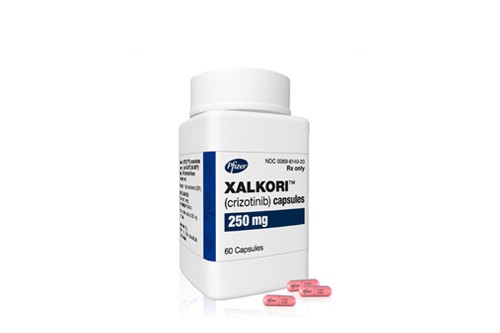
Pfizer’s lung cancer drug Xalkori should not be available for NHS use in England and Wales according to final draft guidance from the National Institute for Health and Care Excellence (NICE).
NICE, which provides healthcare guidance, acknowledged that the drug was effective in patients with previously treated advanced non-small-cell lung cancer (NSCLC) who have the gene mutation anaplastic lymphoma kinase (ALK), but it was too expensive to justify its use considering other treatments are already available.
This is despite a patient access scheme proposed by Pfizer, which meant the pharma company would cover part of the £51,179 cost of a course of treatment of Xalkori (crizotinib).
NICE had already failed to recommend the drug in earlier guidance, and Pfizer had used the subsequent consultation period to propose the patient access scheme as well as additional information for NICE to perform a revised cost-effective analysis.
This was enough, however, despite Sir Andrew Dillon, NICE’s chief executive, acknowledging the potential benefits of Xalkori as a personalised treatment for patients with the ALK gene mutation, which is present in about 5 per cent of people with NSCLC.
He said: “Although the independent committee that considered the evidence found crizotinib to be clinically effective treatment for ALK-positive non-small-cell lung cancer, even when the manufacturer’s discount had been applied, crizotinib could not be considered a cost-effective use of NHS resources.”
Responding to the guidance, Pfizer criticised the NICE process for assessing drugs, claiming it did not take into account the way the trial was designed to give patients allocated chemotherapy the opportunity to receive crizotinib once their cancer had progressed.
“The Government’s strategy for personalised care in cancer includes treating people with medicines targeted at the specific characteristics of their cancer,” said Dr David Montgomery, medical director, Pfizer Oncology UK. “Yet crizotinib has not been well served by the current assessment models employed by NICE.
“Today’s decision is another example of NICE declining a medicine which we strongly believe is a clinically and cost effective treatment. If this trend of negative decisions continues, we could see the UK fall even further behind other European countries for cancer survival rates“.
This follows a separate NICE rejection for Pfizer’s Bosulif in chronic myeloid leukaemia and echoes previous remarks from Roche, which has faced several NICE rejections for cancer medicines, such as Avastin (bevacizumab) and Perjeta (pertuzumab).
Both companies have also criticised the lack of clarity from the UK Government on the future of the Cancer Drugs Fund, which currently gives patients in England access to cancer medicines not recommended by NICE but is due to close in early 2014 once a new drug reimbursement system is launched in the UK.




